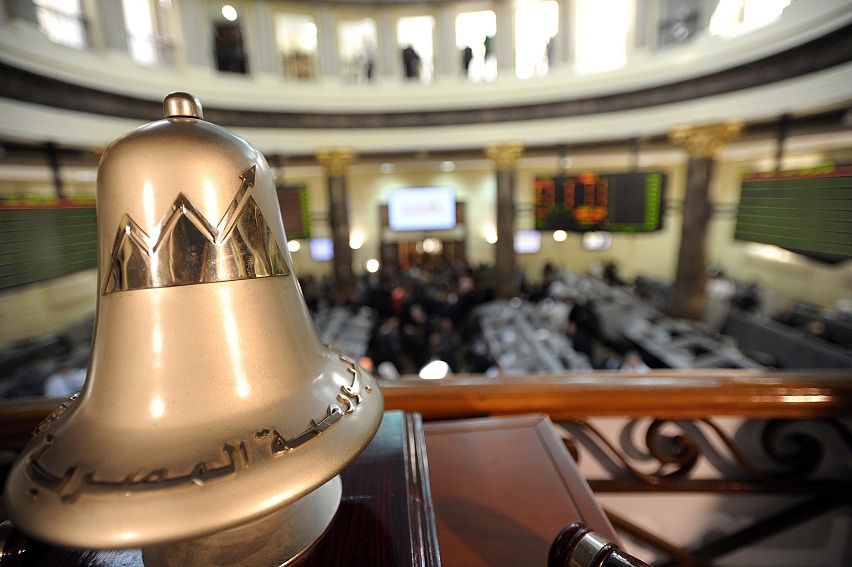CAIRO: Despite recent social and political setbacks that have caused Egypt’s economy to plummet, global delegates at the fourth annual Trade and Export Finance Conference were optimistic, laying out plans for an Egypt and Middle East that is "sure" to revive.
"With such a large population in Egypt, consumption will prove resilient over the next period," said Andrew Long, CEO of HSBC Bank Egypt.
“To say this year has been challenging is an understatement," he added.
With regional growth slowing, labor unrest intensifying, tourism almost nonexistent and foreign investment at a standstill, the country has seen its economy suffer as the transition to democracy prolongs.
HSBC’s Long pointed out that for this year, Egypt’s growth is predicted to be only 1.2 percent.
Although Egypt’s ruling military council has promised to hand over power to a civilian government by the end of 2012, many institutions are still playing the "wait and see" game before they enter the market.
HSBC and local banks, however, will not be among these institutions.
"The banking sector has always been Egypt’s backbone," said Mounir El-Zahed, Managing Director of Banque du Caire.
"There is still a need for financing; we’ve always had minimal delinquencies, we have better banking policies and a social role to play in the community," he said.
As for HSBC, Long told Daily News Egypt that the bank will continue lending as Egypt’s economy matures despite the current political uncertainty.
"Economic growth has shifted from the west to the east," Long said in a speech to the delegation of global business officials. "We are confident that growth lies in these regions, not western or European nations; there is a new world order."
He stressed the importance of the trade relationship between Asia and the Middle East that is growing and surpassing that of western countries with Asia.
"Although before there was all talk and no action when it came to business between the Middle East and Asia, right now trade between the regions is rapidly growing," said Long. “The United Arab Emirates, for example, has been the largest trading partner with India, even more so than the United States.”
According to Long, trade between China and the Arab world is growing at a 30 percent annual rate.
Egypt and China’s trade relationship has also been on the rise with Egyptian imports to China reaching a value of $6041 million in 2010, up from $5810.9 million in 2008, according to an HSBC report.
While stressing that the relationship between the Middle East and Asia will be among the leading growth factors in coming period, Long said that financing local businesses and talent is another key factor that will help Egypt and the region’s markets advance faster.
"We have to connect capital with opportunities, connect the best ideas with the capital they need," he said.
"We are currently liquid, we all want to land," said Long, referring to HSBC as well local banks.
Looking to the future, Long added that HSBC is extremely optimistic when it comes to Egypt’s market, which is sturdy enough to make it through this tough period of uncertainty.
However, he added that to bring back the needed foreign investment to the country, clear policies and economic plans need to be put in place by the government so investors can understand the decisions being made.
At a time when courts are annulling business deals signed under the previous regime, however, promoting Egypt’s business climate to foreign investors becomes a daunting challenge.
"Foreign investors are concerned that the current decisions the government is taking might be the same in the future," he said.
In fact, HSBC was under scrutiny in early May for recent dealings with real estate developers such as Palm Hills and Talaat Moustafa Group (TMG), who recently were among the companies that were forced to return lands they previously purchased at undervalued prices back to the state.
At the time when HSBC oversaw these transactions, there were no sanctions on Egypt as a state; therefore the bank did not break any international or local laws, Long told DNE.
"These past dealings are not an issue," he added. "We did not lend any money at the time, we oversaw the transactions and we followed all regulations."
This is the fourth consecutive year that the trade and export finance conference was held in Egypt.
International institutions including Abn Amro bank, National bank of Greece, Saudi Export Program, Peel Hunt of the United Kingdom, and the International Islamic Trade Finance Corporation (ITFC) were present.
The conference brought together corporate executives, domestic and international banks, ECAs and multilaterals, insurers and risk analysts as well as various key actors across the supply chain.
Topics up for discussion include corporate challenges in importing and exporting goods, the condition of banks, soft commodity production, financing the oil and gas sector as well as multi-banking solutions for LCs, guarantees and open account transactions.



